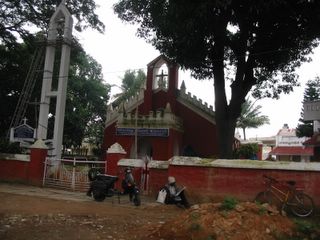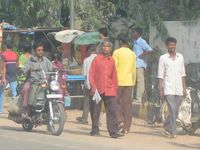RIP. Prof.P.S.Subramanium.
PS was born on 26th Jan. 1948. He lost his father when he was merely two and a half years old. He was brought up at a relative's place in Mumbai while his mother was with another relative in Chennai. As a student, he had to share a small (even by Mumbai standards) house with 15 other people. So there was no way he could study during the day. The only way he could study at night without disturbing the others was to use a torch under the cover of a bed sheet! Sleeping hours were therefore shifted to the time between the end of classes and other peoples' bedtime. As a result, his relatives thought he was a loafer and, in great concern, called his mother from Chennai to talk to the principal. The principal was quite amused with the `loafer' theory and assured them that he was one of their best students!
After PS completed his engineering education, he joined the Indian Railways. His job was to carry out maintenance and repair of electric and diesel-electric locomotives and then test-run them on the tracks. The repair and maintenance required him to go under the locomotive and carry out checks on the circuitry. Since this was quite inconvenient and made his clothes dirty, he wanted to find another method. He devised a method by which he could do all the diagnosis by carrying out electronic tests from inside the cabin of the locomotive and then deducing the faults. He had independently rediscovered the concept and methodology of fault coverage!
Upon seeing what PS had done, his enlightened and visionary supervisor from the railways bought him a book on Computers. Thus was PS inducted into a `new' world that we now take for granted.
A chance sighting of an advertisement made PS apply to the Tata Institute of Fundamental Research (TIFR). On the interview panel was Prof. Narasimhan who founded the school for computer science in TIFR. He wrote a string of zeroes and ones on the board and asked PS what it meant. PS said that the meaning depended on the semantics which was determined by the context. If the string was presented to an arithmetic unit, it could be a number; if presented to a string manipulator, it could be a string of characters in ASCII; if presented to an instruction decoder, it could be an op code and so on. The comprehensiveness and articulation of the answer and the use of the apt word "semantics" so impressed Prof. Narasimhan that PS was immediately hired.
PS spent about 30 years in TIFR working on all aspects of electronics and computer science. While being quite at ease with the most abstruse of mathematics, he was also good `with his hands' and was responsible for designing and prototyping India's first four- functional calculator.
One of the major contributions that PS made in TIFR was to VLSI. He headed the VLSI Task Force set up by the Govt. of India and wrote a report like no other. In response to the recommendations in the report, the govt. set up VLSI Design Centres in all the IITs and IISc. These centres seeded VLSI activity in India which has blossomed today to stand up to global competition. One of the achievements of these centres was the development of a hardware description language called IDEAL (Integrated Design Automation Language) and an EDA tool suite called IDEAS (Integrated Design Automation System) that was used successfully by engineers from the Semiconductor Complex Limited to design chips.
After TIFR, PS joined Sasken Communication technologies in Bangalore where he set up and guided the R&D team.
In 2002, PS joined the Embedded Systems team in Tata Consultancy Services (TCS) and made technical contributions to a large number and variety of fields. Besides leading R&D in Multimedia, he led TCS' participation in the EU-sponsored R&D consortium E2R (End-to- End Reconfigurability) which deals with reconfiguration of telecom networks in response to context changes. Not satisfied with routine engineering, PS developed a `processor design paradigm' for reconfigurability, essentially creating a Service Oriented Architecture (SOA) for solving the problem.
.. All the people around him picked his brains and he guided and inspired many PhD students .. Any discussion with PS was like a spiritual experience. All those who have known him will miss his presence but draw inspiration from his memories for the rest of their lives.
His favourite topics and books recommended by him include: Lawvere's category theory, Hodges' model theory, Abramovici's digital system testing, Smullyan's To mock a mockingbird, history of galois theory, galois theory applied to sofware developement, software radio, and combinatorial proofs.
pss homepage.








































